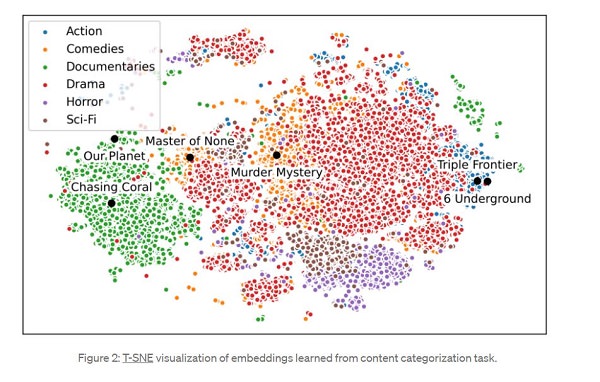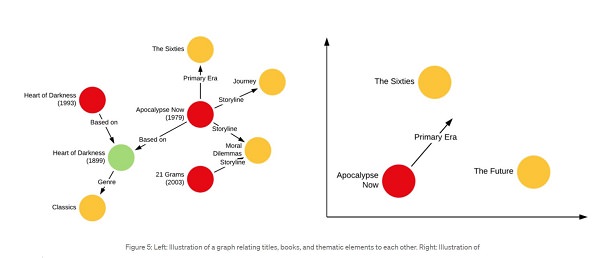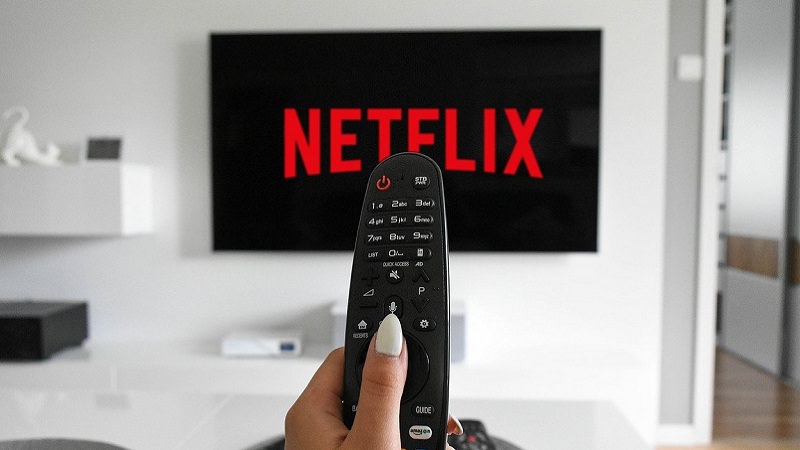Netflix is the largest streaming service in the world, with nearly 200 million users. There are viewers with different interests in over 190 countries. How does Netflix decide which series and movies appear when and where? We explain the Netflix AI that decides.
Although the competition for Netflix has been growing for years, but especially in recent months, the world’s largest streaming service still manages to bring new series and movie hits to its own platform in regular succession.
But what makes Netflix so successful that Disney Plus, HBO Max and the like only lead a niche existence in comparison, despite all the money and commitment? The content plays a decisive role, of course.
How does Netflix decide which movies and series will be on the platform?
The decision as to whether a film or series is bought in from another studio or whether Netflix itself produces a corresponding piece of content is made by those responsible at the executive level of the streaming service.
The process and the creation of a new content is what Netflix itself calls “title”. In the process, the decision-makers consider numerous creative factors. These include, for example, the socio-cultural context, current debates and the zeitgeist.
Also playing a role in the planning of a new title is the composition of the target audience, where – i.e. in which country or countries – it can be found, and how great the risk of financial loss is in the event of failure.
These 2 questions determine all new movies and content at Netflix
Ultimately, the decision-makers at Netflix ask themselves only two simple questions in the creation process:
- What existing titles are comparable and at what level?
- How big is the target audience we can expect, and where do they live?
Actually, these are very logical questions. But successful entrepreneurs like Bill Gates also show that it is often these questions that lead to the best results.
Netflix’s own AI replaces classic surveys by Nielsen and Co.
To answer these questions, Netflix needs a lot of data. Of particular interest, of course, is historical information. Previously released films and series can be used to analyze very well which content was successful in which countries and when.
To find out what Netflix users around the world want to watch, the streaming service has long relied on traditional surveys and analyses by market researchers like Nielsen or GfK in Germany.
The problem with this is that each survey can only give a representative picture at a specific point in time.
For example, anyone who conducted a survey on Germans’ travel wishes in January 2020 could no longer use these findings in March 2020 due to the Corona crisis. So the classic models are not designed to respond to current, socio-cultural developments.
That’s why the streaming service has decided to develop an artificial intelligence. The company reports on this in a detailed post on its own technology blog.
How the Netflix AI works, which helps the decision-makers at Netflix to create or buy new movies and series, we want to explain to you understandably without too much technical background.
The basis of the Netflix AI: Historical data on playing time, genre and medium
The most important basis for all analyses at Netflix is an artificial intelligence, which fulfills two tasks based on existing data:
- It is able to sort movies and series on different levels according to commonalities.
- It shows creative decision-makers which criteria are essential to combine the drama of “Titanic” with the historical context and dark humor of “He’s Back” in a future world like “Stargate.”
The Netflix AI learns on its own and improves its own predictions with each new piece of information it receives. But what information is that? The focus, of course, is on content and historical metadata. These are, for example:
- Title
- Genre
- Duration
- Type (film or series)
- Language
- Viewing figures in individual countries
- Dwell time
- Bounce rates
- Time of release
This list can be extended at will. In terms of content, it is clear what it is all about. But then on a second level, there are content summaries of all films and series in written form. These come from both humans and intelligent language systems like Google’s BERT.
What the Netflix AI spits out: Similarity Maps and Knowledge Graphs
The Netflix AI then creates any so-called “Similarity Maps” at the request of the analysts – these are maps that can show similarities between films and series. This applies to catogories such as genre or more in-depth points such as the mood or humor of a film.

However, it only becomes particularly interesting when the Netflix AI works independently and creates its own maps (“graph”) based on all the data (“knowledge”).
Why is this so interesting? Because the Netflix AI is able to create a creative basic concept for a director according to specific wishes. This gives filmmakers the opportunity to combine films, series, basic moods and the like from previous, successful films.

For example, the graphic shows how Apocalypse Now (1979) connects to Heart of Darkness (1899) with 21 Grams (2003) on all levels.
The importance of Netflix AI
In their conclusion, Netflix employees Melody Dye, Chaitanya Ekanadham, Avneesh Saluja and Asish Rastogi leave open how important Netflix AI actually already is today.
However, they emphasize that the “success of our titles depends heavily on our users” and therefore we “need to do the best we can to know their needs and use the data we have.”
Regardless of other factors, it is very impressive to see how the Netflix AI works and what it is capable of.
Of course, constantly maximizing on the components of successful titles also carries the risk of missing out on new opportunities. That’s why it’s essential never to leave all decisions to an artificial intelligence.
However, knowing in advance which film and which series will be successful in which country is a huge economic advantage for Netflix.










